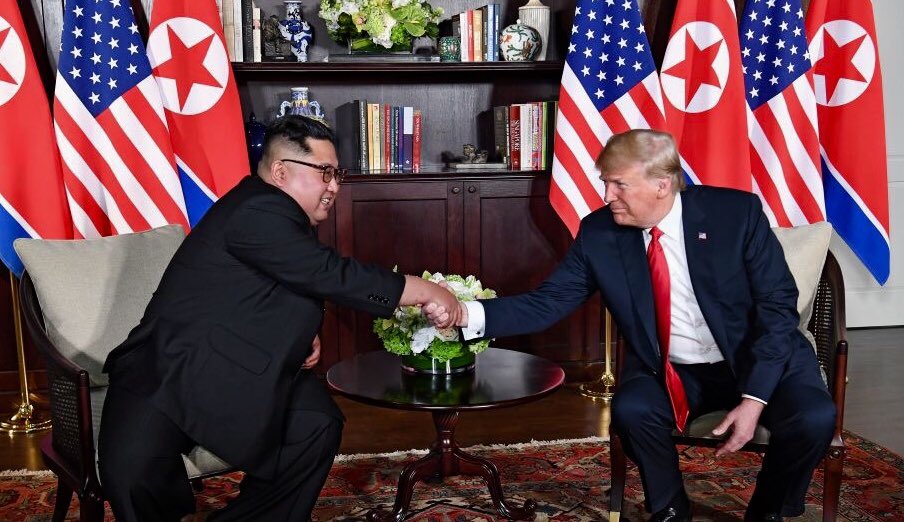The Peninsula
Could a Limited Inspection Agreement Build Confidence in U.S.-North Korea Talks?

By Troy Stangarone
With talks to dismantle North Korea’s nuclear weapons and missile programs stalled, South Korean President Moon Jae-in recently sent his national security advisor, Chung Eui-young, to North Korea to prepare for the upcoming inter-Korean summit and see if Chung could jumpstart the talks.
While Kim Jong-un reaffirmed his commitment to denuclearization in his talks with Chung, he also expressed frustration. In press remarks after his trip, Chung said that “Chairman Kim … expressed frustration over the doubt shown by some parts of the international society about his will … North Korea has been preemptively carrying out measures needed for denuclearization, and Kim said he would appreciate that such good faith is accepted with good faith.”
In light of North Korea’s track record in prior negotiations, as well as Kim Jong-un’s own failure to follow through on the Leap Day Agreement, skepticism about his sincerity is understandable. Especially, since Kim Jong-un has only expressed a willingness to dismantle his programs in private and has yet to make similar statements in public.
North Korea has taken steps towards the dismantlement of its programs, such as the collapsing of North Korea’s nuclear test facility at Pyungge-ri and the dismantlement of a missile engine test facility in western North Korea. According to Chung, Kim Jong-un said that the nuclear test site is now unusable and the dismantlement of the engine test facility prevents North Korea from testing missiles. However, North Korea has not allowed inspections of those facilities, and in the case of the nuclear test facility only allowed journalists to witness its collapse. Some experts have suggested that the explosions at Pyungge-ri may not have been powerful enough to have collapsed the tunnels. The importance of the missile test site is also debatable.
During the Six Party Talks, negotiations ultimately fell apart over North Korea’s unwillingness to agree to inspection of it facilities. One way that Kim Jong-un could demonstrate his good faith would be to allow for international inspectors to visit the two dismantled sites.
To make inspections more palatable to Kim Jong-un, and to lessen concerns that the United States is asking something of North Korea without giving anything in return, one way to build trust and help reboot the talks would be to agree to an initial limited inspection agreement. During the latter part of the Cold War, the United States and Soviet Union allowed for inspections of facilities in their territory. In return for allowing inspection of the Pyungge-ri nuclear test facility and the dismantled engine test site, the United States and South Korea could offer to allow North Korea to inspect two appropriate military facilities in South Korea.
Kim Jong-un has little to lose by allowing limited inspections to advance the process, as North Korea will need to agree to more robust inspections in any denuclearization agreement. However, an unwillingness on North Korea’s part to allow inspections of facilities that have been dismantled will only allow concerns about North Korea’s true intentions to harden.
While limited inspections will not remove the skepticism that some have regarding North Korea’s intentions, they could help to build the trust that will be needed if the United States and North Korea are to successfully reach an agreement.
Troy Stangarone is the Senior Director for Congressional Affairs and Trade at the Korea Economic Institute of America. The views expressed here are the author’s alone.
Photo from Wikimedia Commons.
